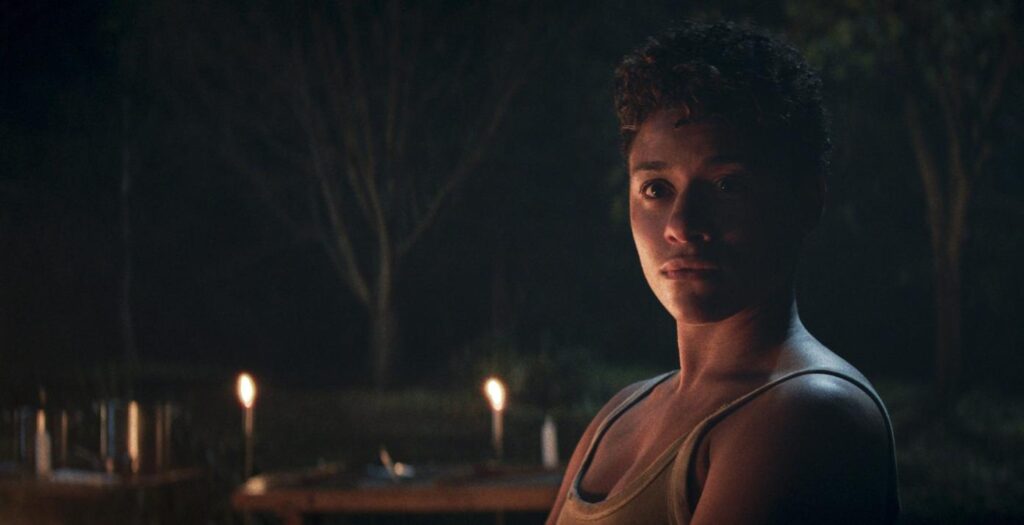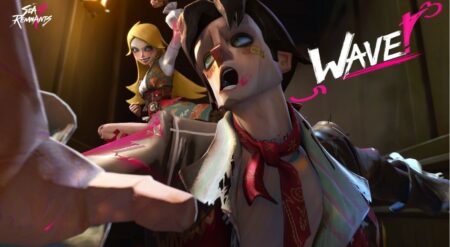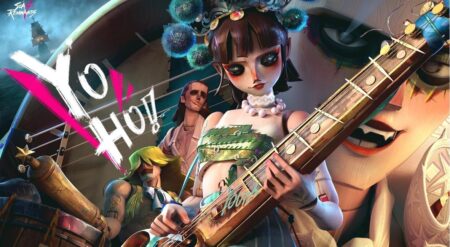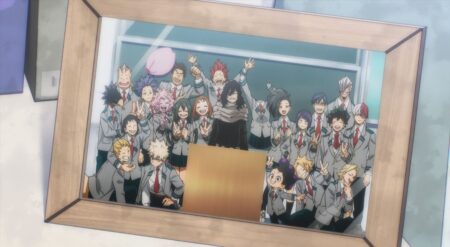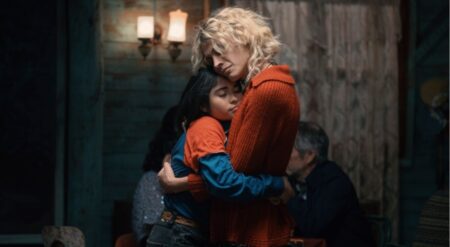Kicking off the Halloween season for Prime Video, House of Spoils introduces audiences to Chef. A woman who finally has her dream chance of opening up her own restaurant, she abandons her existing life to move to the countryside in an old home. Beholden to her investment partner and what he thinks will make them get more money, Chef begins to confront her own insecurities and develop who she is as the house around her begins to drive her mad.
During Fantastic Fest, where the film celebrated its world premiere, we spoke with the writer-director duo Bridget Savage Cole and Danielle Krudy and the film’s leads, Ariana DeBose and Arian Moayed, about the film. We spoke about the process of using food to tell a horror story and what they’re proud of most. And with DeBose, we spoke about how she brought her experience as an Afro-Latina to her role as Chef and the burden women of color face in male-dominated spaces.
BUT WHY THO: House of Spoils immediately caught my attention because food is such an emotive thing. So I wanted to ask, from the writing-directing standpoint to Bridget and Danielle, how did you use it as a narrative device? And for Ariana and Arian, was it tricky to work with within this concept and the emotive responses food pulls from people?
ARIANA DEBOSE: First of all, that’s a very good question, and I think you only really know what that means [as an actor] when you’re in it. It’s not something you can plan, you know? Food has its own language. It’s a love language for some, and it’s also literally an artistic language and a way of life for others… There was very little I could do besides being in it. Yes, you can train with the different chefs, and you can go and observe in their restaurants and do all of those different things, but you have to really be in the kitchen and own the space and own the food in different ways to know what that means. Then there’s actually quite decent footage of me eating sticks and trying different plants and things, and that’s what it is like. That’s an emotional response to food, so being willing to let yourself do it is cool. But Arian, you actually own a restaurant.
ARIAN MOAYED: I love that you brought up love language. Because love, you know, in the food industry, it is a lot. I mean, the love language is really like acts of service in a weird way. And so like, the wanting to make sure that everyone’s getting the right meal or having a nice time is, like, so intense and so crazy. And yes, I do. I am one of the owners of Pel bar, and we often talk about, you know, how, like, it is kind of just how that experience for someone sitting down having one of our towers, and how that all feels so it’s, it’s incredibly, you know, it’s very, it’s very intimate. Food is very, very, very deeply intimate, so very sensual,
ARIANA DEBOSE: And I guess it’s not sensual in, like, the sexual way here; this is the event you sense and how thrilling that is. And if that all breaks, like it does in this movie, you get some things like our haunted horror house.
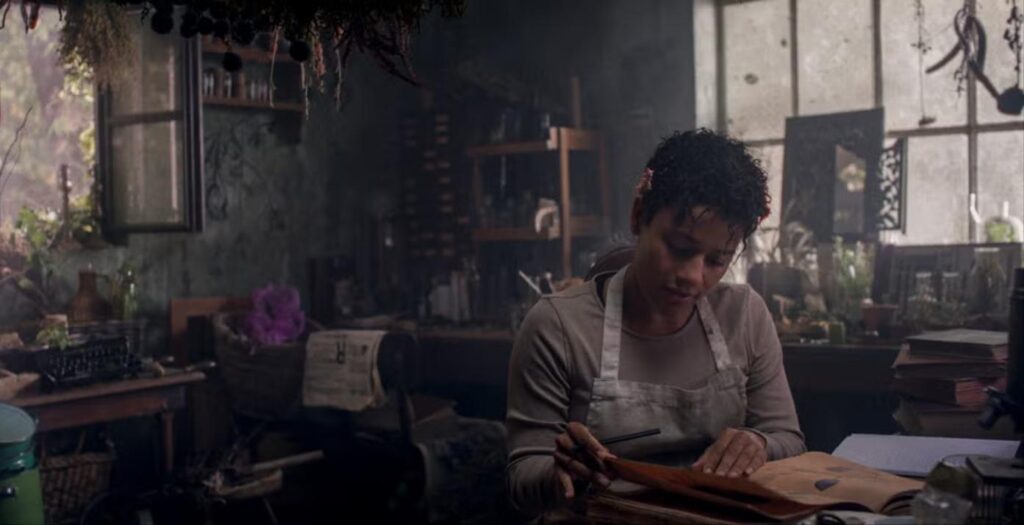
BRIDGET SAVAGE COLE: Basically, Krudy and I had both worked in restaurants for years and like many people, we love food. We love cooking. We like being around it. I’m not a great cook, but I love being around food and really delicious food. And we also saw that the art of making food is something that is really accessible, that a lot of people can relate to as like a creative medium and a way to find your voice. And so this movie for us, it’s a journey of leadership and finding your voice, which we really related to as filmmakers, and our journey to be leaders and find our own way to do that.
In this movie, you know, working with the food creator, Zoe Hegedus, our Hungarian chef, who both created the menu and styled the food. She really worked from a place of character, and she tried to have the food have a full arc that sort of mirrors the chef’s own, sort of like an artistic journey. Where she begins with the sort of more traditional pedigree of a high dining experience, sort of like the plates and the foods that she knows, it’s the things that she’s emulating.
Then Zoe found a way to show it as Chef started to break away from where she’d been, and Zoe started incorporating more unconventional, unexpected foods as Chef starts going into unexpected places herself. I trying to express [the perfect labor and work she did] in the food. It was really challenging and took a lot of accountability on the plate to keep it authentic and accurate.
DANIELLE KRUDY: She really did that. Yeah, that’s just it gave me a different thought. I think this is a story like, you’ll watch, if you’re specifically looking through the female gaze, you’ll watch this person who is, like, steeped in, you know, the institution of culinary arts. Like, that’s how she has created her life and her world, and as she’s exposed to different elements, those things like, piece apart, but it’s the food. Oh my god, I lost it. It was so good.
ARIANA DEBOSE: This is where I was going with it. Authenticity. You get to know Chef through what she is attempting to make from the beginning to what she ends up making in the end. For me, being a woman of color, there are a lot of things that I do remember. I would sit down and journal about it at night because there’s a difference between making something that you know somebody wants versus making something that you want to make; it may not necessarily be for you, but it is your act of service. Yes, it is the thing that you love, and it is an expression of your artistry, not because you know it’s sellable. Those are two very different things. I think women who watch this film can probably relate to that, too.
BUT WHY THO: That’s actually my next question. The horror and thriller genre has a lack of Latinas in general and Black women as well. So I wanted to ask how it feels to be the lead in this film as an Afro-Latina, and then also how that connects to your journey in the film and outside of it? Is there a specific takeaway for women of color who watch the film?
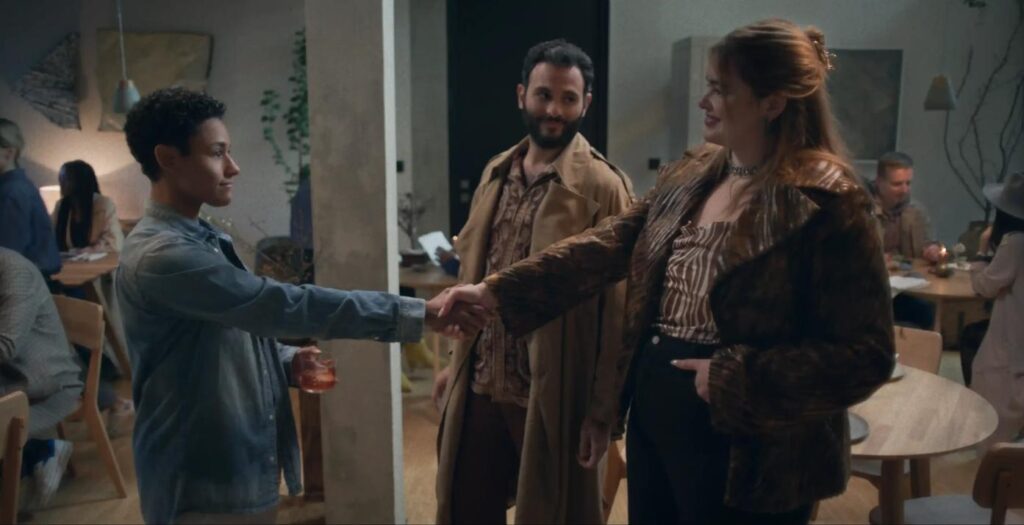
ARIANA DEBOSE: It’s interesting. I never really thought of it, but you make a very valid point. I don’t traditionally see a lot of women of color in the horror or thriller genres, not in leading roles, at least. Normally, they’re, you know, the best friend that accidentally gets killed with Drano by the serial killer. But they’re not necessarily integral to the plot moving forward in this way. So that is actually very exciting.
I have talked about this a little bit in other in regards to other projects, but I don’t traditionally choose my work based on the genre. So I wanted to make this because I the story really spoke to me. I met these two crazy girls, and I was like, whatever you want to do, let’s do it. This character was so intriguing to me on so many different levels because I think there are a lot of women, especially women of color, who literally know this: this Queen’s name is Chef! She doesn’t have a name!
How many women in the service industry don’t have names? You only see their faces. They don’t hear “Thank you.” They don’t get gold stars, but they have dreams. They’re ambitious. They keep working. They take the hits. They’re in the toxic environment. They’re doing the thing, and sometimes, once you do move up the ladder, you are forced to acknowledge some of the toxicity that, while you have been steeped in it by no fault of your own, it’s literally how the world works half the time.
But you take on some of that toxicity, and then what’s the process of releasing it so that you can get back to who you actually are and what you actually want to get to the world? So even though this is like a genre-specific film, that is, it’s a genre-bending piece. It like rides the line, I think, beautifully between thriller and with horror elements but it’s still, to me, it’s a work of art. It’s a great story. It’s like, you describe it as a dark fairy tale. I think that’s really great, because it rides the line, but there’s so much more to it. So I think when you sit down, you watch it, and you can just have an open mind. Don’t judge a book by its cover. You’ll actually get a lot from this.
BUT WHY THO: I think my last question is, in creative works, in general, everybody puts a little bit of themselves, or a lot of themselves, into that when they’re creating. Are there any little parts of the film, whether it’s a piece of your performance, a piece of the directing, or a piece of the writing, that you are particularly proud of for the audience to see?
DANIELLE KRUDY: I’m really so grateful for Ariana’s perfect articulation just a moment ago. [House of Spoils] is the process of releasing these sad spirits, the toxicity of whatever you want to call them. Personally, I feel really proud of at least striving to make a character with an arc that goes there. Whether we nail it or whatever, it’s up to the audience and the fans, but just trying to capture how complex and mystifying it can be, even for an individual going through it, let alone trying to put it into a script. I feel so proud that we got somewhere. I think we go many places. You know what I mean?
ARIAN MOAYED: It’s also really funny! I’m saying it’s good thing too!
ARIANA DEBOSE: Yeah! There’s so many instances in this film where you’re like, “Oh, my God, that’s hilarious!” But that’s also real. I think a lot of these moments came from real experiences that either [Bridget and Danielle] had in different ways and have enveloped [us]. I know some of the ways I chose to play scenes were direct pulls from things I’ve experienced.
If you really sit back, you can see the humor and the darkness in it—the inspiration in it. There’s a lot of inspiration in the film and I’m not talking about quotables that we’re gonna put on a cue card and Instagram. I mean, like, true like moments of what it feels to have those [feelings]. I’m most excited for those.
Y’know though, when you first started asking the question. I was like, “What of myself did I give this character?” And I was like, well, my hair! [House of Spoils] is the first time I used my real hair in a film. And then I realized that was a shallow answer. But also like, power to the curl!
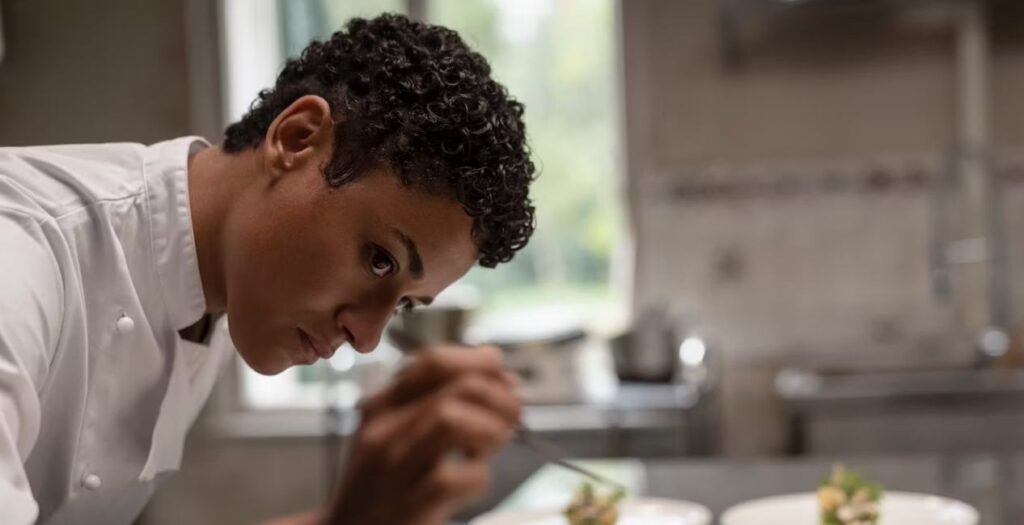
BUT WHY THO: No, that’s actually an important answer too!
ARIANA DEBOSE: Then yeah! My hair, it was my first time I had my real [identity in there].
BRIDGET SAVAGE COLE: I feel like Ariana is another author of this character. I feel like it was deeply rooted [in us]. It’s just wild because Krudy and I wrote from such a personal place of our own experience. And then got to watch [Ariana] come in and feel that Chef is [her] too, you know? It was like [her] experience and [her] swagger and way of walking into the world is such a part of this. But it still just feels familiar and personal.
ARIANA DEBOSE: I think Chef can actually be the everywoman for anyone who’s had an experience, like Chef’s—and I don’t mean this supernatural experience—but more about if you ever tried to do something hard, or really gone after that goal or that dream. [If you ever] try to make something happen in a predominantly male environment. I think anybody who can relate to that will understand.
BRIDGET SAVAGE COLE: I wanted to say one thing—and this is kind of silly and not really answering your question—but something I’m proud of is what Arian said earlier in the day. It was a fun set! Because this is a movie about workplaces in a lot of ways, so I feel like I really cared about being a positive work environment. So I take that to heart. Whenever people say they had a good experience on set.

